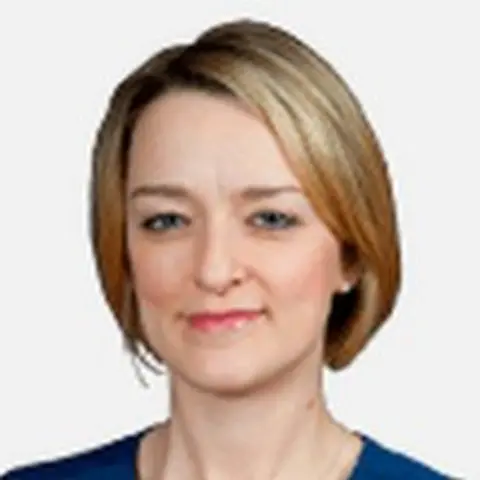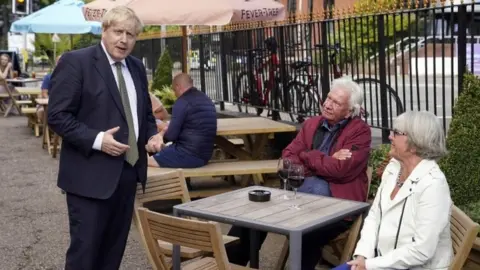Covid: A narrow chance for Johnson to apply the brakes?

 Andrew Parsons Media
Andrew Parsons MediaIf Boris Johnson had decreed a year ago that he was going to call last orders on the pub at 10pm, the ravens might have left the Tower.
But given the terrible warnings from the government's top scientists on Monday, the kind of strict measures that ministers had been discussing - and the extent of restrictions that many people are already living with in some of our towns and cities - you might wonder if what the prime minister has ended up deciding is less stringent than it might have been.
As we have talked about many times, Downing Street is all too aware of the economic havoc the restrictions around the pandemic have caused.
Logically, therefore, it has always only wanted to take action when it has felt absolutely urgent. It is also the case that, as we enter a second surge, more is understood about the virus itself.
That means the government ought to be able to take a more sophisticated approach to managing the spread, rather than blunt, blunderbuss nationwide measures.
At least for now, the prime minister has concluded there is a narrow but real chance to put the brakes on the outbreak before taking more draconian steps.
Mood shift
Something else has changed, though. There were strong voices in government arguing for more immediate action, wondering whether it was right to take steps rather than strides towards tougher controls.
But the political mood has shifted. It's not just that the chancellor worked to persuade Mr Johnson to stop short of full closures of anything yet, evidently with some success.
Not just that, as one cabinet minister worried, dramatic restrictions would be "hellishly unpopular".
And the atmosphere among Conservative MPs has changed too, with prominent backbenchers urging more caution, and complaining fiercely about how decisions have been made.
From the broad smile of one of them, strolling in the sunshine outside Parliament on Monday, "they seem to have started to listen", confident that after a bumpy few weeks, MPs' pushing had started to have an effect.
Yet the prime minister, by his own admission, accepts the government did not understand enough, quickly enough at the start.
Ultimately the results of the decisions taken at the start of this second surge will be chalked up by his name.
